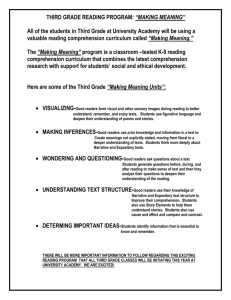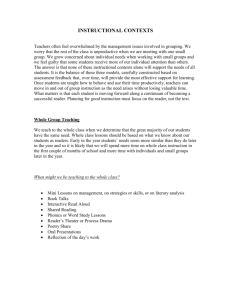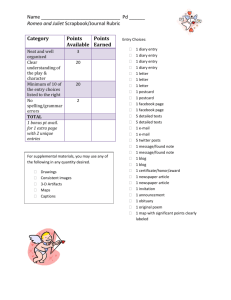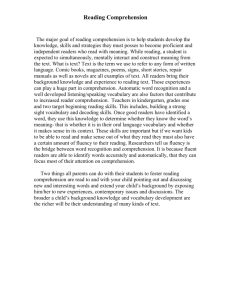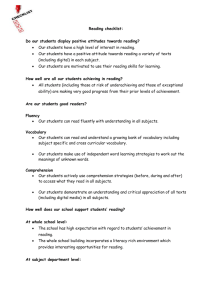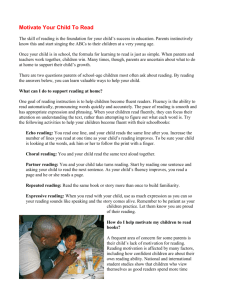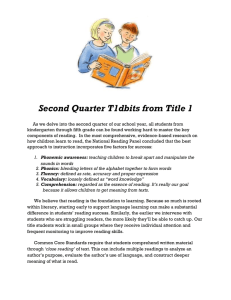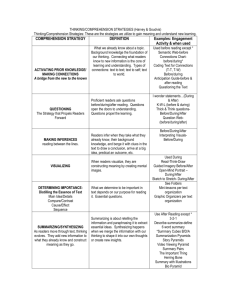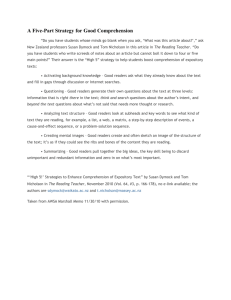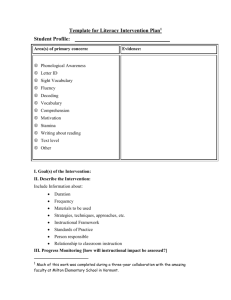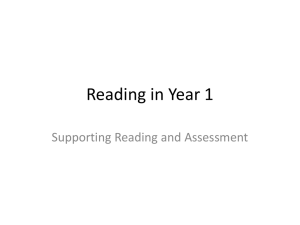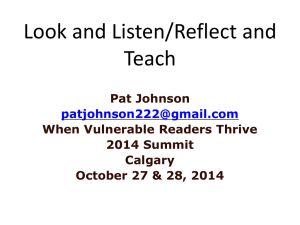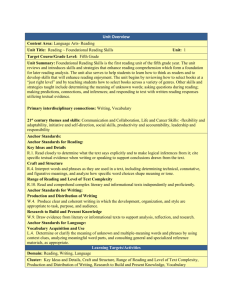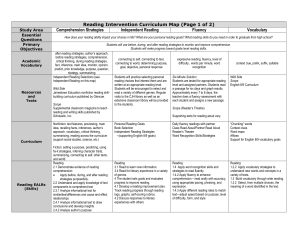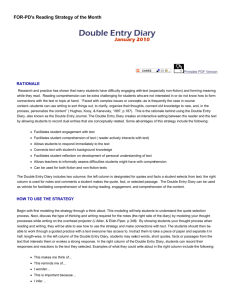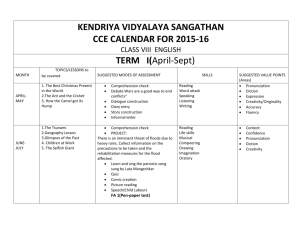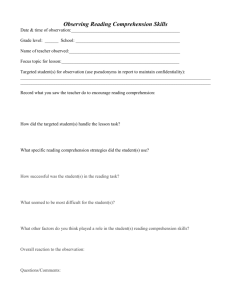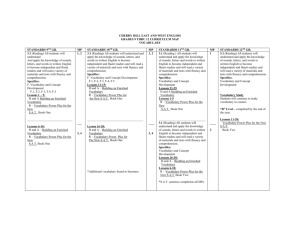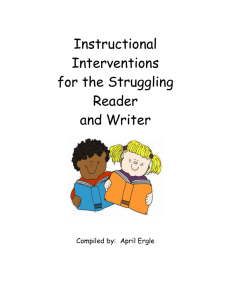Ludlow Junior School Reading Policy September 2012 Aims To
advertisement
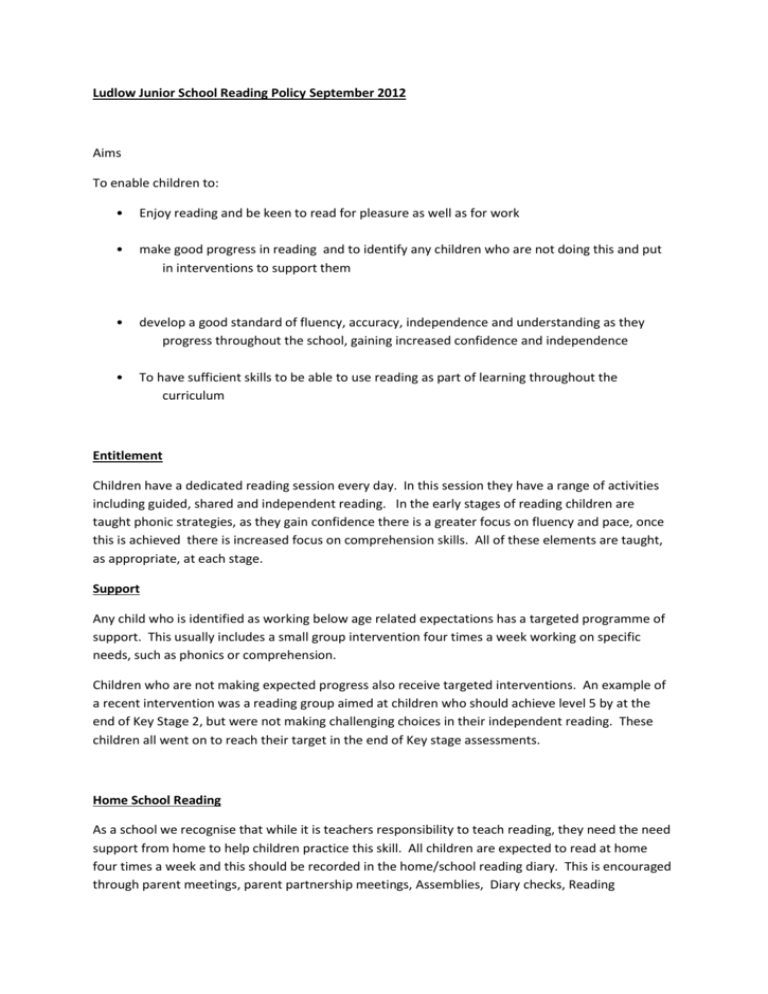
Ludlow Junior School Reading Policy September 2012 Aims To enable children to: • Enjoy reading and be keen to read for pleasure as well as for work • make good progress in reading and to identify any children who are not doing this and put in interventions to support them • develop a good standard of fluency, accuracy, independence and understanding as they progress throughout the school, gaining increased confidence and independence • To have sufficient skills to be able to use reading as part of learning throughout the curriculum Entitlement Children have a dedicated reading session every day. In this session they have a range of activities including guided, shared and independent reading. In the early stages of reading children are taught phonic strategies, as they gain confidence there is a greater focus on fluency and pace, once this is achieved there is increased focus on comprehension skills. All of these elements are taught, as appropriate, at each stage. Support Any child who is identified as working below age related expectations has a targeted programme of support. This usually includes a small group intervention four times a week working on specific needs, such as phonics or comprehension. Children who are not making expected progress also receive targeted interventions. An example of a recent intervention was a reading group aimed at children who should achieve level 5 by at the end of Key Stage 2, but were not making challenging choices in their independent reading. These children all went on to reach their target in the end of Key stage assessments. Home School Reading As a school we recognise that while it is teachers responsibility to teach reading, they need the need support from home to help children practice this skill. All children are expected to read at home four times a week and this should be recorded in the home/school reading diary. This is encouraged through parent meetings, parent partnership meetings, Assemblies, Diary checks, Reading Champions and other events. Classes have individual incentive such as reader of the week , merits for diary checks and other celebrations. The headteacher also monitors reading Diaries and asks praises children who read regularly. We recognise that some for some children reading at home is very difficult, due to family circumstances and while trying not to stigmatise them, we do endeavour to arrange additional opportunities for them to read. Reading Schemes Children who are at the early stages of reading follow are put on book banded books. These books are from a variety of reading schemes but predominantly the Oxford Reading Scheme. We feel that this is better than following one scheme exclusively, as it offers children a wider range of choice and experience. The children progress through the different colours of book bands, until they are proficient enough to become independent readers. There is a section of books for emerging readers, which offers support for children when they first become free readers. Class teachers monitor independent reading and help children make appropriate choices. In addition to this the librarian has a wealth of knowledge about children’s books and is available at lunchtimes and after school, to help children and parents with making good choices. As a school we feel it is important that children learn to make appropriate choices about what to read and have the independence to do this as this is a skill they will need in Secondary School and beyond. The School Library The school has an excellent Library, which contains a wide selection of fiction and non-fiction texts, the children were involved in choosing books for the library and are encouraged to request or recommend new books for purchase. In addition there are four computers which are available to children at lunchtimes and after school. The library is open to children every lunchtime and four afternoons after school, when parents are encourages to choose books with their children. The range of Reading Material We feel that it is important that children realise, from an early age, that reading is part of everyday life, so we encourage them to read a wide variety of reading material. This may include recipes, instructions for games, leaflets about places visited, comics, ICT texts etc.
